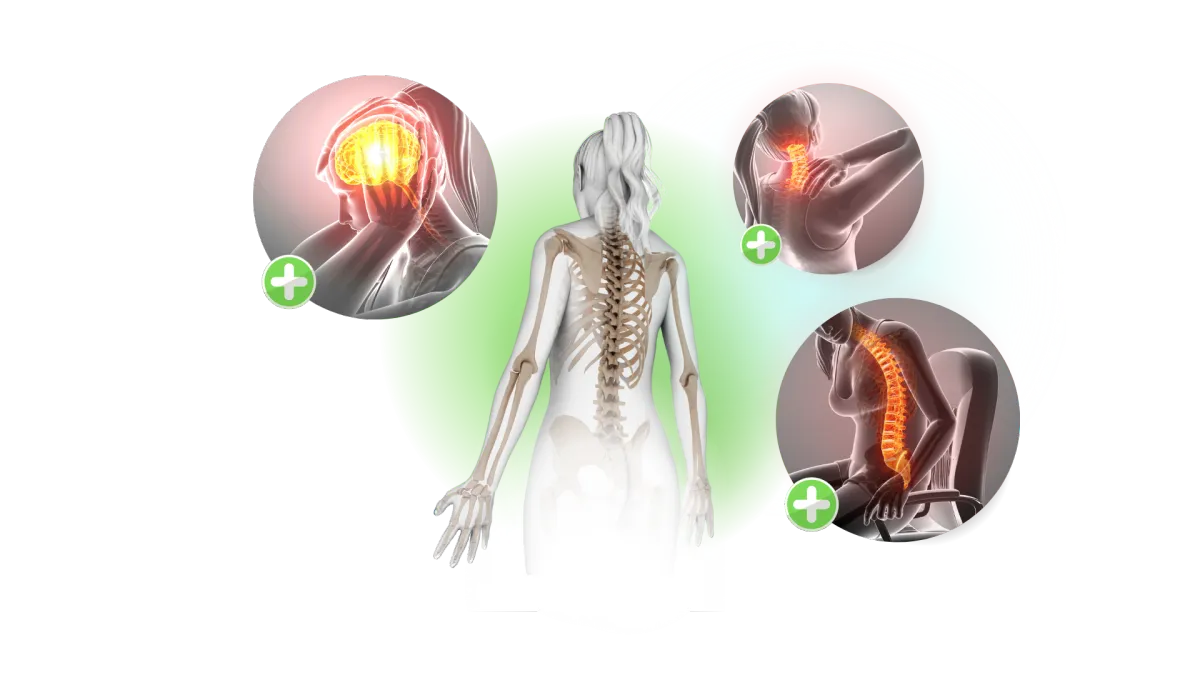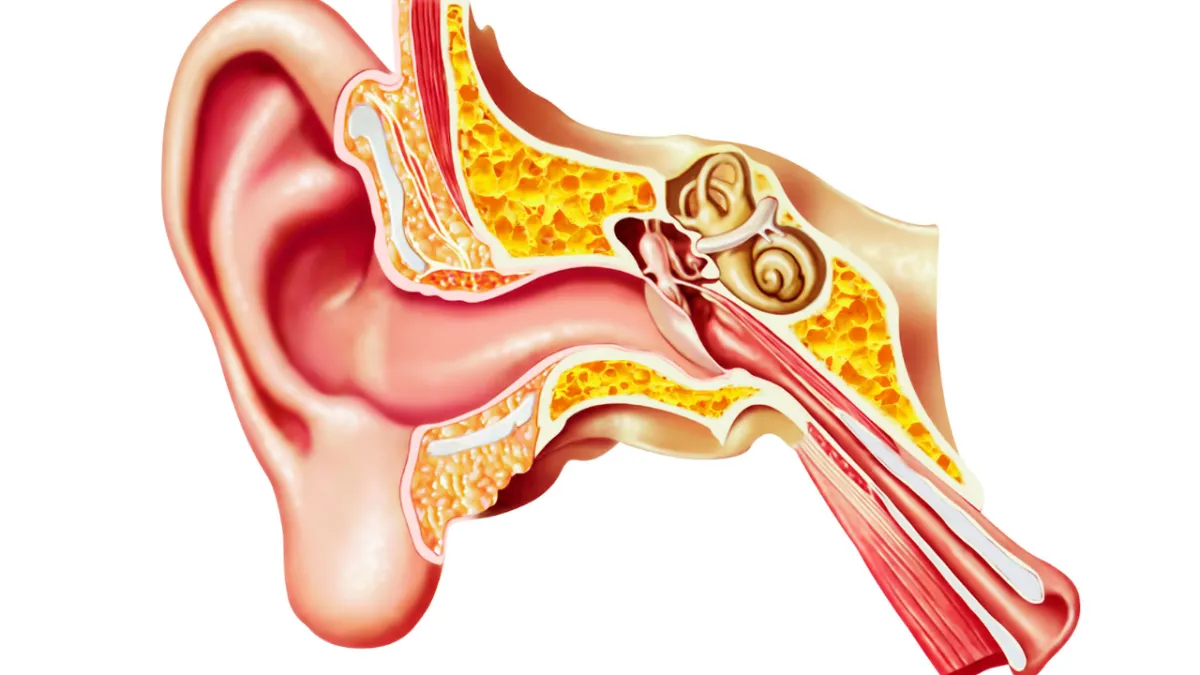12 Weeks To Health
Are you tired of living with chronic long-term back pain, neck pain, or headaches?
Have you tried everything, from pain medication to physical therapy, and still can't find relief?
If you're ready to take control of your spinal health and find relief from pain, click the button to schedule your free assessment now. We look forward to helping you live your best life, pain-free.
Your Spinal Health
Registered chiropractic care in Penrith, Cumbria
5 Poets Walk, Penrith CA11 7HJ · 01768 899 036
Your Trusted Spinal Health Experts
At Your Spinal Health, we are passionate about helping you achieve your best health and well-being. We have been serving our community for over 20 years with a commitment to providing the highest quality care.
Combining natural hands-on treatment with our week-on-week progressive system to help symptoms like back pain, neck pain and headaches.

Start NOW. Just 1-click away
Enjoy family days out without being stopped by pain
Save On Your Treatment Costs
Each visit is £50.
Save if you choose to pre pay.

Start NOW. Just 1-click away
Enjoy family days out without being stopped by pain
MEET THE FOUNDER & CEO
I'm Peter Bennett!
Peter Bennett is a chiropractor in Cumbria with over 25 years of experience helping people overcome back pain, stiffness, and mobility problems — naturally. At Your Spinal Health, his focus is on finding the root cause of spinal problems and restoring lasting balance, strength, and function without cracking or forceful manipulation.
Peter’s gentle, science-based approach supports the body’s own healing process, helping clients not only relieve pain but also improve posture, coordination, and confidence in movement.
Through Your Spinal Health, Peter combines in-clinic care with online self-help programs to empower people to understand their spines, take simple daily actions, and enjoy more years of active, pain-free living.

FAQS
What conditions can we help with?
Spinal health care can help a wide range of conditions, including back and neck pain, headaches, sciatica, joint pain, and even issues related to posture. It's not just about addressing the symptoms; it's about improving your overall health and well-being by improving the health of your spine and nervous system. If you have specific concerns or questions about your condition, please don't hesitate to ask for a consultation to discuss how spinal health care can benefit you.
Is spinal health care safe, and are the adjustments painful?
Spinal health care is generally considered safe when performed by trained professionals. The adjustments are typically not painful; in fact, many clients report feeling relief and improved mobility after an adjustment. Our spinal therapists are highly skilled and will use gentle techniques tailored to your individual needs. Your comfort and safety are our top priorities, and we will explain every step of the process to ensure you feel at ease during your sessions.
How many visits will I need to see results?
The number of sessions you'll need depends on various factors, including the nature and severity of your condition, your overall health, and your treatment goals. Some clients experience relief after just a few sessions, while others may require more ongoing care. During your initial Spinal Health Assessment, our therapists will assess your specific situation and provide a personalised treatment plan. Our goal is to provide efficient and effective care, so you can return to a pain-free and healthy lifestyle as soon as possible.

The Surprising Link Between Your Neck and Your Ears
When the World Tilts or Rings
Have you ever felt your ears ringing after a loud concert, or the world spinning when you got up too quickly? These sensations remind us how much we depend on our ears—not just for hearing, but for keeping our balance.
But here’s the part many people don’t know: your neck and spine play a crucial role in both hearing and balance.
The Nerves Behind Hearing and Balance
Your ears do more than pick up sound. Inside your inner ear are tiny, fluid-filled canals that act like spirit levels, telling your brain where your body is in space. This sense is called vestibular balance.
The information from your ears doesn’t travel alone—it’s carried by nerves that pass through and alongside the upper cervical spine(the top of your neck).
As Gray’s Anatomy reminds us:
“The nervous system controls and coordinates all the functions of the body and relates the individual to his environment.”
That means any irritation to these nerves can change how sound and balance information is processed.
Did You Know?
You don’t actually hear sound directly. Your ears collect vibrations, but your brain has to interpret them into meaningful sound.
If nerve signals are distorted—by spinal misalignment or tension in the neck—your brain may “hear” ringing (tinnitus) or misjudge your position in space, making you feel dizzy or unsteady.
How Spinal Misalignment Affects Hearing and Balance
A misaligned neck can:
Irritate nerves linked to the auditory (hearing) system, causing ringing in the ears.
Disrupt balance signals from the inner ear to the brain, leading to dizziness or vertigo.
Tighten muscles at the base of the skull, reducing blood flow to balance centres in the brain.
Interfere with motor nerves that help your eyes and balance system work together, making it harder to steady yourself.
Common symptoms people notice include:
Tinnitus (ringing, buzzing, or humming in the ears).
Dizziness or light-headedness.
Vertigo (the sensation that the room is spinning).
Unsteadiness on uneven ground.
Headaches linked with ear pressure.
Simple Tip for Neck and Balance Health
Good posture is key for reducing strain on the neck and protecting hearing and balance signals.
Try this:
Imagine a string gently lifting the crown of your head toward the ceiling.
Keep your ears in line with your shoulders rather than jutting forward.
Practice slow, gentle neck stretches daily to keep the upper spine moving freely.
This not only eases pressure on the nerves, but also supports clearer balance and steadier hearing signals.
Takeaway
Your ears and balance system don’t work alone—they rely on clear nerve communication through the spine.
A misaligned neck can distort those messages, leading to tinnitus, dizziness, or poor balance. By looking after your spine, you’re helping your nervous system keep the world sounding steady—and standing upright.

